Blog
Inspiration In Every Post

Sleep Is Important For You (Part 1)
Sleep Is Important For You
As a kid, I use to tell my babysitter that my brain just needed oxygen when I was yawning past my bedtime. I heard it on a science kid TV show and it made sense to me. The brain gets a boost of oxygen from my yawn, and I could yawn my way right out of bedtime by just giving it more air. This was back in the 80s. It surprisingly took a few more decades for science to discover more about sleep.
“Sleep is your mental superpower."

In just 2012, a lymphatic system was discovered in our heads that turn on only when we sleep! With quality sleep, the brain is flooded with fluid that washes away the cellular debris and neurotoxins that build up while we are awake. Your brain works hard as you sleep to perform these critical functions to prepare for the following day and operate at optimal levels.
The Quality of Your Sleep
Sleep is important to recover and recharge both your body and mind’s strength. Regardless of who you are, humans at every age need a state of sleep every 24 hours to function, reboot, and thrive.
Sleep matters and it’s essential to understand how critical it is for your mental wellness including your mood, memory, and brain function to work properly.
Sleep = Brain Cleaning
Sleep = Recovery
Sleep = Superpowers
Your brain needs sleep to remove this neural trash daily by getting at least 7 hours of sleep as an adult brain. The Centers for Disease Control and Prevention references 8 to 9 hours as what many of us need to wake up feeling refreshed.
Losing Sleep & It's Affects
Duration and the quality of your sleep is the most effective healing mechanism our body has to function. The lack of good sleep dramatically impairs your mental wellness including your focus, memory, mood, and brain function.
You can feel it when you got lousy sleep because of repeated wake-ups or disorders such as Sleep Apnea, Restless Legs Syndrome, or Periodic Limb Movements Disorder.
You wake up tired, cloudy, and needing coffee to get your brain and body going. Sitting down to work, you feel sluggish and distracted, and in the evening, it can go downhill quickly with feelings of stress and irritability.
Without quality sleep, you can become anxiety-filled, frustrated, irritated, depressed, or angry. Multiple sources including Harvard Health Publishing have pointed out the sleep and mental health connection:
About 75% of people with depression also have insomnia.
69% to 99% of people with bipolar disorder experience sleep issues.
More than 50% of people with anxiety have sleep troubles.
Kids with ADD/ADHD are more likely to have a sleep disorder.
You may know someone who doesn’t have a diagnosis but lives in a state of sleep deprivation. Their harsh personality, negative outlook, and rigidness may be caused by sleep deprivation making work, life, and relationships hard. It could feel like walking on eggshells to not set them off or maybe you just avoid them altogether.
Without quality sleep your focus, memory, and creative problem-solving decrease. Your thinking is slowed and it is prone to mistakes. This is why it’s often said to; “sleep on it before making a big decision”. Your thoughts, feelings, and actions come from the brain and if the brain is tired, it’s much harder to make good decisions and be productive.
The Impact of Sleep Loss
Deciding to get behind the wheel of a car while sleep deprived is an example of a decision that can have catastrophic consequences. The Automobile Association of America (AAA) compared the likeness of car crashes to drivers who got more than 7 hours of sleep. AAA reported the following:
6 to 7 hours of sleep = 30% more likely to be in a crash
5 to 6 hours of sleep = 90% more likely to be in a crash
4 to 5 hours of sleep = 430% more likely to be in a crash
Less than 4 hours of sleep = 1150% more likely to be in a crash

Dr. David Yang, executive director of the AAA Foundation for Traffic Safety stated; “Our new research shows that a driver who has slept for less than five hours has a crash risk comparable to someone driving drunk.”
Since the beginning of man, sleep has also healed the body. It’s the daily recovery of your immune system, skeletal, endocrine, nervous, and muscular systems.
Viruses, high blood pressure, and heart disease can take hold, be caused, or worsen depending on your sleep duration and quality.
How many band-aid medicines have been prescribed as opposed to what might be needed: A SLEEP STUDY. We have had several rounds of sleep studies at my house with interesting and surprising results.
Being an investigator of your own mental and physical health can get you to a new level of answers.
Where do you start to troubleshoot your sleep?
How do you know if the time you spend sleeping is quality? That was the question that go me motivated to find out and oh what a journey it has been!
Uncovering the root cause as opposed to just dealing with the symptoms we experience is truly the best way to approach problem-solving. And the best part is you get a re-do for better sleep every night.
First, I suggest using the Sleep Disruptor checklist. It’s a quick way to assess what may be robbing you of quality sleep. It goes way beyond the obvious sleep hygiene and puts you on the path to pinpoint possible sleep challenges that once removed, improve your sleep.
The second resource to consider is a Sleep Boost. It provides the coaching, motivation, and step-by-step actions you can take to work on your sleep struggles and learn if a sleep study is right for you.
Your body and mind cannot function well without the recharge of sleep but it can be solved! Sleep is not wasted time but a required state that the human body needs to be resilient and your best self, day after day.
Read Part Two HERE
©brain health coach | ALL RIGHTS RESERVED | Privacy | TERMS & CONDITIONS

